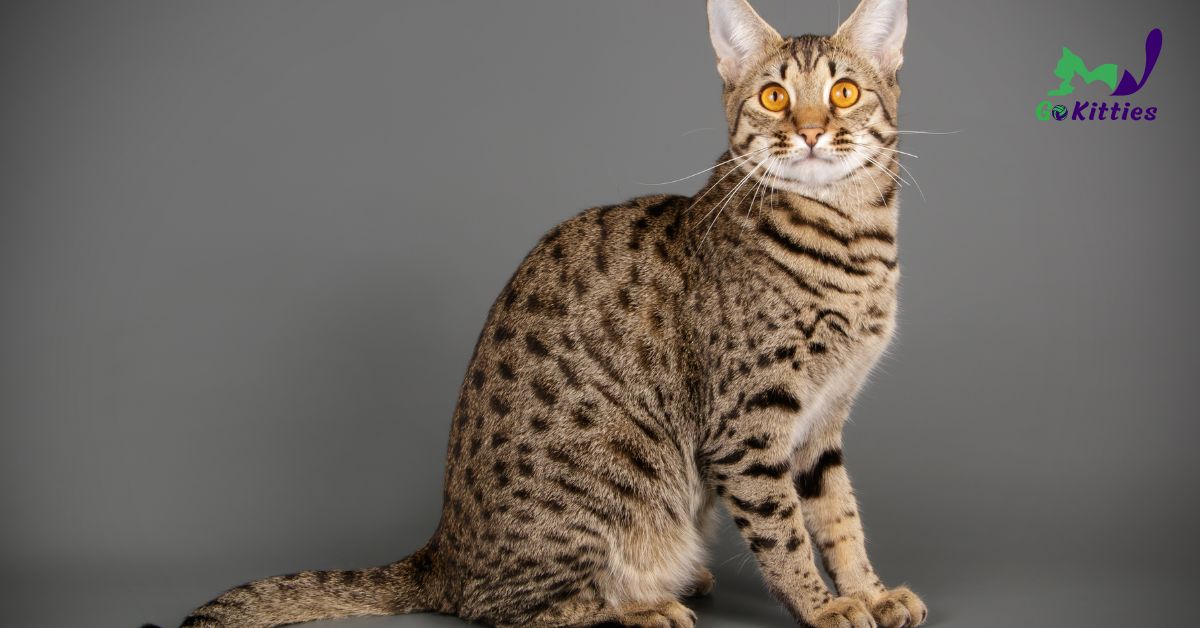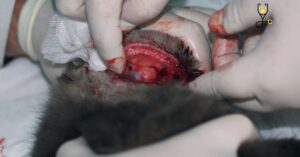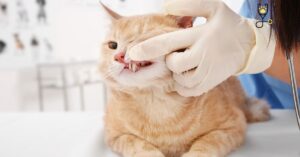Whether you’re considering getting a Savannah cat, or you’re simply curious about this unique breed, there’s a lot to learn. In this blog post, we’ll provide an overview of the Savannah cat breed, including its history and physical characteristics. We’ll also touch on some of the health problems that can affect Savannah cats, and offer tips on care and feeding. So read on to learn all about these fascinating felines!
Breed Synopsis-Savannah Cat
-Height: 17-19 inches
-Weight: 20-30 pounds
-Coat: Short and dense, with spotted or marbled patterns in browns, blacks, whites, and yellows
-Character: Intelligent, curious, active
-Life expectancy: 12-16 years
-Origin: United States
-Breed type: Hybrid
Characteristics Of The Savannah Cat
1. Size: One of the most striking things about the Savannah cat is its size. Males can weigh up to 30 pounds, and females can weigh up to 20 pounds. The average height for a Savannah cat is 17-19 inches.
2. Coat: The Savannah cat has a short, dense coat that comes in a variety of colors and patterns. The most common colors are browns, blacks, whites, and yellows. The coat may be solid-colored, spotted, or marbled.
3. Character: Savannah cats are intelligent and curious creatures. They are also very active, which means they need plenty of exercise and stimulation.
4. Life expectancy: The life expectancy of a Savannah cat is 12-16 years.
5. Origin: The Savannah cat is a hybrid breed that originated in the United States.
6. Breed type: The Savannah cat is a hybrid of the domestic cat and the African serval.Health

Health Problems That Can Affect The Savannah Cat
1. Hip Dysplasia: Hip dysplasia is a genetic condition that can cause joint problems and lameness in dogs, cats, and other animals. It occurs when the hip joint doesn’t develop properly, which leads to arthritis and pain.
2. Obesity: Because of their large size, Savannah cats are susceptible to obesity. Obesity can lead to health problems such as diabetes, joint problems, and respiratory difficulties.
3. Respiratory problems: Savannah cats often have respiratory problems due to their small stature and short noses. These problems can include congestion, runny nose, and difficulty breathing.
4. Heart problems: Some Savannah cats have heart problems due to their small size. These problems can include heart murmurs and arrhythmias.
5. Gastrointestinal problems: Some Savannah cats have gastrointestinal problems, such as constipation, diarrhea, and vomiting.

Caring Of The Savannah Cat
1. Exercise: Because they are so active, Savannah cats need plenty of exercises. A good way to provide this is to create an indoor play area with climbing structures and toys.
2. Diet: Savannah cats should be fed a high-quality diet that is rich in protein and fat. This diet should be supplemented with vitamins and minerals to ensure proper nutrition.
3. Grooming: Savannah cats require very little grooming due to their short coats. However, they should be brushed regularly to remove any dead hair.
4. Veterinary care: Savannah cats should see a veterinarian at least once a year for a physical examination and vaccinations. They should also have their teeth cleaned and their nails trimmed on a regular basis.
5. Training: Because of their intelligence, Savannah cats are relatively easy to train. They can be taught tricks, manners, and behaviors. The Savannah cat is a fascinating breed with a lot to offer.

Feeding Your Savannah Cat
1. Protein: Savannah cats need a diet that is rich in protein in order to maintain their active lifestyle. The best sources of protein for Savannah cats are meat, poultry, and fish.
2. Fat: Savannah cats also need a diet that is high in fat. The best sources of fat for Savannah cats are oily fish, such as salmon and tuna.
3. Vitamins and minerals: In addition to protein and fat, Savannah cats also need a diet that is rich in vitamins and minerals. The best sources of these nutrients are fruits, vegetables, and whole grains.
4. Water: It is important to provide plenty of fresh water for your Savannah cat. Water helps to keep the body hydrated and aids in digestion and metabolism.
5. Supplements: In some cases, your veterinarian may recommend the addition of supplements to your Savannah cat’s diet. These can include probiotics, omega-3 fatty acids, and vitamin B12. With their big personalities and high energy levels, Savannah cats are a popular choice for many individuals and families.
Conclusion
The Savannah cat is a fascinating breed with a lot to offer. To care for a Savannah cat, it is important to provide plenty of exercises, a high-quality diet, regular veterinary care, and appropriate training and grooming. With proper care, Savannah cats can live long and healthy lives.
Frequently Asked Questions
Q: Are Savannah cats prone to any particular health problems?
A: Yes, some common health problems that may affect Savannah cats include hip dysplasia, obesity, respiratory problems, heart problems, and gastrointestinal problems.
Q: How can I help keep my Savannah cat healthy?
A: To help keep your Savannah cat healthy, it is important to provide regular exercise, a high-quality diet, regular veterinary care, and appropriate grooming and training. Additionally, you should make sure that your cat has plenty of fresh water and supplements as needed.
Q: What are some tips for feeding my Savannah cat?
A: The best diet for your Savannah cat should consist of high-quality protein and fat sources, such as meat, poultry, fish, fruits, vegetables, and whole grains. You should also make sure to provide your cat with plenty of fresh water at all times. Additionally, you may want to consult with your veterinarian about any necessary supplements or dietary restrictions.
Q: How can I train my Savannah cat?
A: Savannah cats are intelligent and relatively easy to train. With patience, consistency, and positive reinforcement, you can teach your Savannah cat a wide range of tricks, behaviors, and manners. Some tips for training your Savannah cat include using clicker training techniques, giving lots of rewards and praise, and being patient as your cat learns new things. With the proper care and training, Savannah cats can make wonderful pets for families of all kinds.
Q: What should I look for when choosing a Savannah cat breeder?
A: When choosing a Savannah cat breeder, it is important to find someone who is knowledgeable about the breed and can provide you with high-quality cats. You may also want to consider whether or not the breeder offers any sort of health guarantee or ongoing support. To ensure that you are making a responsible choice, take your time and do your research before choosing a particular breeder or cattery. With these considerations in mind, you can be sure to find an excellent Savannah cat for your family. In conclusion, if you are looking for an active, intelligent pet that has lots of personalities, then a Savannah cat might be right for you. To care for your Savannah cat, it is important to provide plenty of exercise, a nutritious diet, regular veterinary care, and appropriate training and grooming. With the proper care and training, Savannah cats can make wonderful pets for any family.







